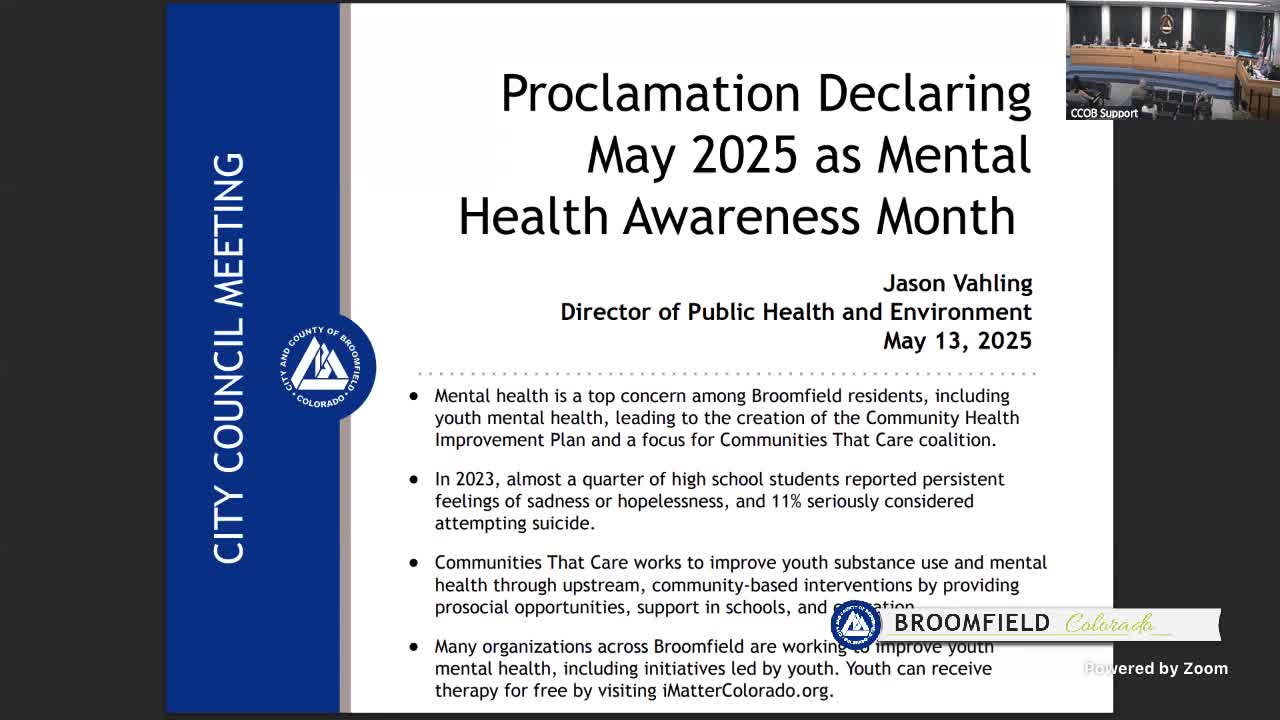Article not found
This article is no longer available. But don't worry—we've gathered other articles that discuss the same topic.

Council directs further study on drive‑thrus, backs a gas‑station setback review and asks staff to draft passenger‑rail resolution

Open space staff preview Broomfield Trail Adventure and 2025 Broomfield 100 challenge

Broomfield proclaims Mental Health Awareness Month; youth groups, programs highlighted

Broomfield leaders review 2025 Colorado legislative session; local funding hit amid $1.1B deficit

